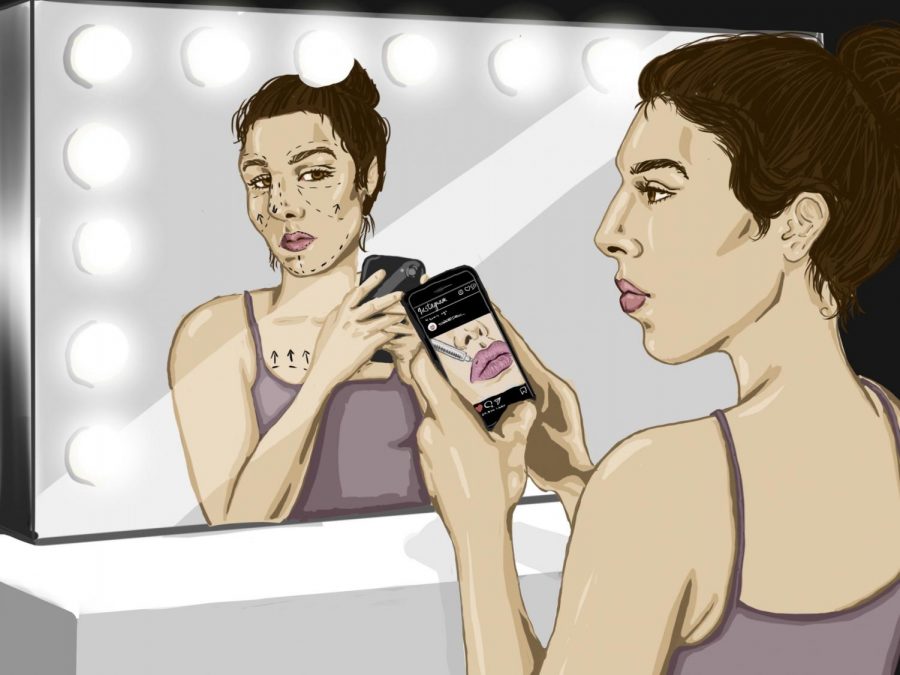- Web
- 6 Hours ago
Mental health screening now ‘must’ before cosmetic procedures
-

- Hum News
- Aug 19, 2023

LONDON: The Joint Council for Cosmetic Practitioners (JCCP) in UK has implemented measures aimed at ensuring the well-being of clients by screening them for mental health concerns before conducting cosmetic procedures.
According to News Medical, the proactive approach was designed to address the increasing demand for quick cosmetic fixes and the potential vulnerabilities of individuals seeking such treatments.
Meanwhile, National Medical Director of the National Health Service (NHS) England Professor Stephen Powis has expressed support for the initiative, emphasising the significance of training practitioners to identify individuals who might be particularly susceptible to such procedures due to underlying mental health issues. He further urged the providers to recognise conditions like Body Dysmorphic Disorder (BDD), a psychological condition characterised by an obsession with appearance.
Read More: 3,967 steps a day: the new magic number for a healthy, happy life?
“Appearance holds immense significance for young people, and the prevalence of idealised images and readily available cosmetic procedures is contributing to a rising mental health and anxiety crisis,” Professor Powis stated.
Following discussions with NHS England, the JCCP has decided to introduce the new measures, which are expected to be implemented by all council members. However, despite this decision, only a fraction of practitioners—100 out of 1,000—have registered with the council, highlighting a gap in the adoption of these regulations.
While the effort of cosmetic companies to protect the mental health of young people through stricter controls is a positive development, experts like Professor Powis underscore the need for stronger, mandatory measures to prioritise mental health concerns.
Professor Powis also advocated for universal participation in the new council, particularly among practitioners offering procedures like Botox injections and dermal fillers.
As per the media reports, the training involved identifying mental health symptoms, understanding the psychological aspects of appearance, and identifying when clients may require assistance due to their vulnerability.
What is Body Dysmorphic Disorder?
Body Dysmorphic Disorder (BDD), in simplest words, is a condition in which individuals feel obsessively anxious about how they look. They have low self-esteem, body-image issues, they have a strong critical parent inside them which keeps on mocking them for their body appearance.
Individuals with BDD often resort to cosmetic procedures as a quick solution to alleviate their distress, even though these interventions do not address the underlying psychological challenges.
“BDD affects one in 50 people, causing significant distress and has a huge impact on quality of life,” says Kitty Wallace, from the Body Dysmorphic Disorder foundation. However, “cosmetic procedures like Botox, now widely available on the high street can have a damaging effect on the mental health of young people,” she added.
When cosmetic procedures don’t go as planned
The new code of practice follows an investigative report by ITV News earlier this year, which exposed instances of cosmetic procedures going wrong. The incidents revealed the lack of expertise to rectify errors and underscored the need for standardised regulations.
According to Save Face, organisation supervising accredited practitioners, over three years, at least 600 complaints regarding botched non-surgical procedures were reported. As per the reports, lip-filling errors caused by beauticians dominated the list.
Meanwhile, the British Association of Aesthetic Plastic Surgeons (BAAPS) has called for stricter filler regulations and medical training. Whereas, the NHS and professionals led changes, there was a consensus that broader societal shifts were needed to protect vulnerable people seeking cosmetic procedures.




